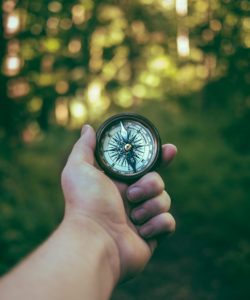Nowadays, terms such as “depression, anxiety, bipolarity” are constantly on everyone’s lips… but do we actually know what all these concepts mean? How do I know if “I’m just feeling down” or if I’m feeling something more serious? Am I exaggerating about everything that happens to me? Is being sad the same as having depression?
Depression has always existed, but the demands of the modern world have increased its prevalence to the extent that it is now one of the most widespread health phenomenons in the world. In fact, according to the World Health Organization, there are currently more than 300 million people around the globe with depression, and sadly, not all of these people have access to adequate treatment.
What is depression and where does it come from?
Clinical depression is a phenomenon whose origin and development involves many factors (biological, psychosocial and genetic) that interact with each other.
A person may have a certain genetic vulnerability if, for example, there is a family history of depression. By itself, this vulnerability does not mean much, but when coupled with environmental factors (such as certain difficult moments in life), it may result in depression. Sometimes it is easy to identify the factors that lead to depression and at other times, you may feel as though depression has risen for no reason at all.
What are the symptoms of depression?
The distinction between depression and sadness can be somewhat complicated, but the following clues can be useful to distinguish them.
Sadness mobilizes. On the one hand, sadness is an emotion that invites us to do some introspective work, while on the other it also puts us “in motion,” letting us know that there is something in our life that we need to change.
Depression leaves you feeling completely incapacitated, that is, you simply cannot keep doing the things you did before. Oftentimes, depression will simply strip you of the energy or the desire to carry out activities and routines that were once part of your daily life.
Anhedonia, the inability to enjoy things that normally made you happy, is one of the main symptoms of depression. This can quickly lead to a lack of interest, motivation and satisfaction in doing pretty much anything.
Furthermore, it is important to understand that depression is more than just prolonged sadness. Depression places you in an internal state of constant hopelessness. When suffering from it, it becomes excruciatingly difficult to “see beyond” the present: you see no way out, no solution, no hope and no possibility of changing your situation.
However, this type of persistent sadness and bleak outlook on life is not the only clue to inform us about the possible presence of depression. Apathy, anxiety, sudden weight changes, difficulty sleeping, constant drowsiness, feeling of worthlessness or guilt and more can also be warning signs.
Depression is the manifestation of a diverse set of symptoms that can range from mild to unbearable (and can even lead to suicide). In addition, all of these factors and symptoms affect not only what we feel, but also what we think and do.
I have depression, now what?
It’s not always easy to get back on your feet as there are no simple solutions or quick fixes. However, there are certain things that can help you cope with it:
- Create a schedule that is not too demanding but that fills up your day so you’ll always know what to do. This can help you start making every day more productive again.
- Follow a good diet. Your physical health is very important during this time, and it’s essential that you maintain it: your body is going through a difficult moment and needs extra energy and strength to help you overcome it.
- Don’t neglect exercise, even if it’s mild. Riding a bike, going for a jog or even a simple walk can make a big difference. Our brain is designed to release neurotransmitters that trigger happier moods and overall mental well-being, and physical exercise facilitates the production of these chemicals.
- Ask for help. This may be a very sensitive and vulnerable moment in your life. It may be scary but the best thing you can do is to get help from your family, friends and/or professional.
Depression is serious: it may feel overwhelming to try and get out of it on your own, but it is absolutely possible to conquer it with help. Don’t hesitate to seek help – no one should have to suffer alone.









